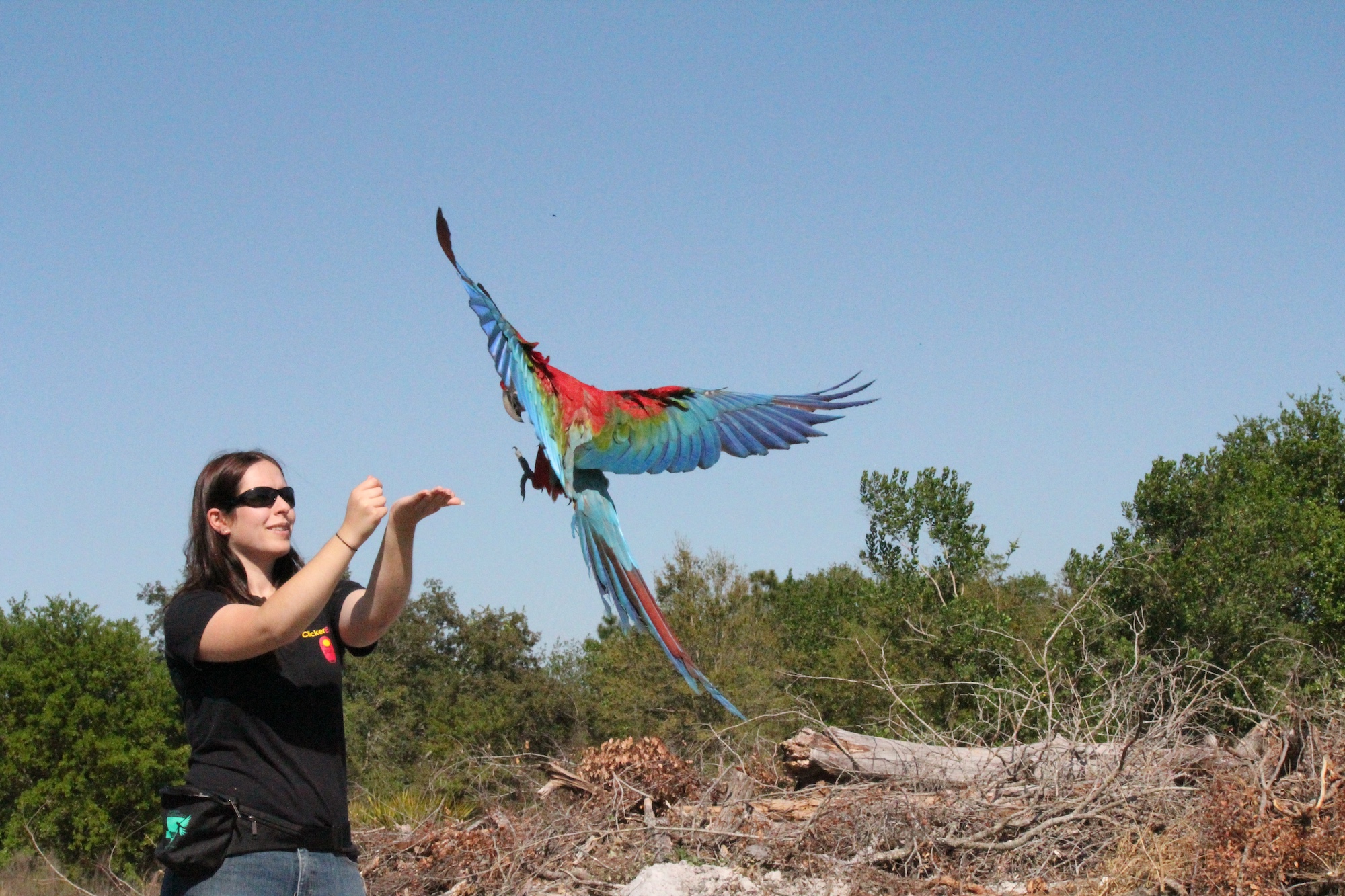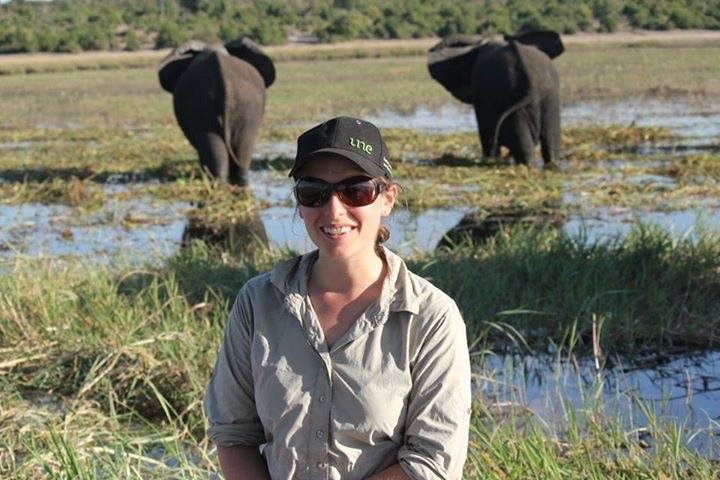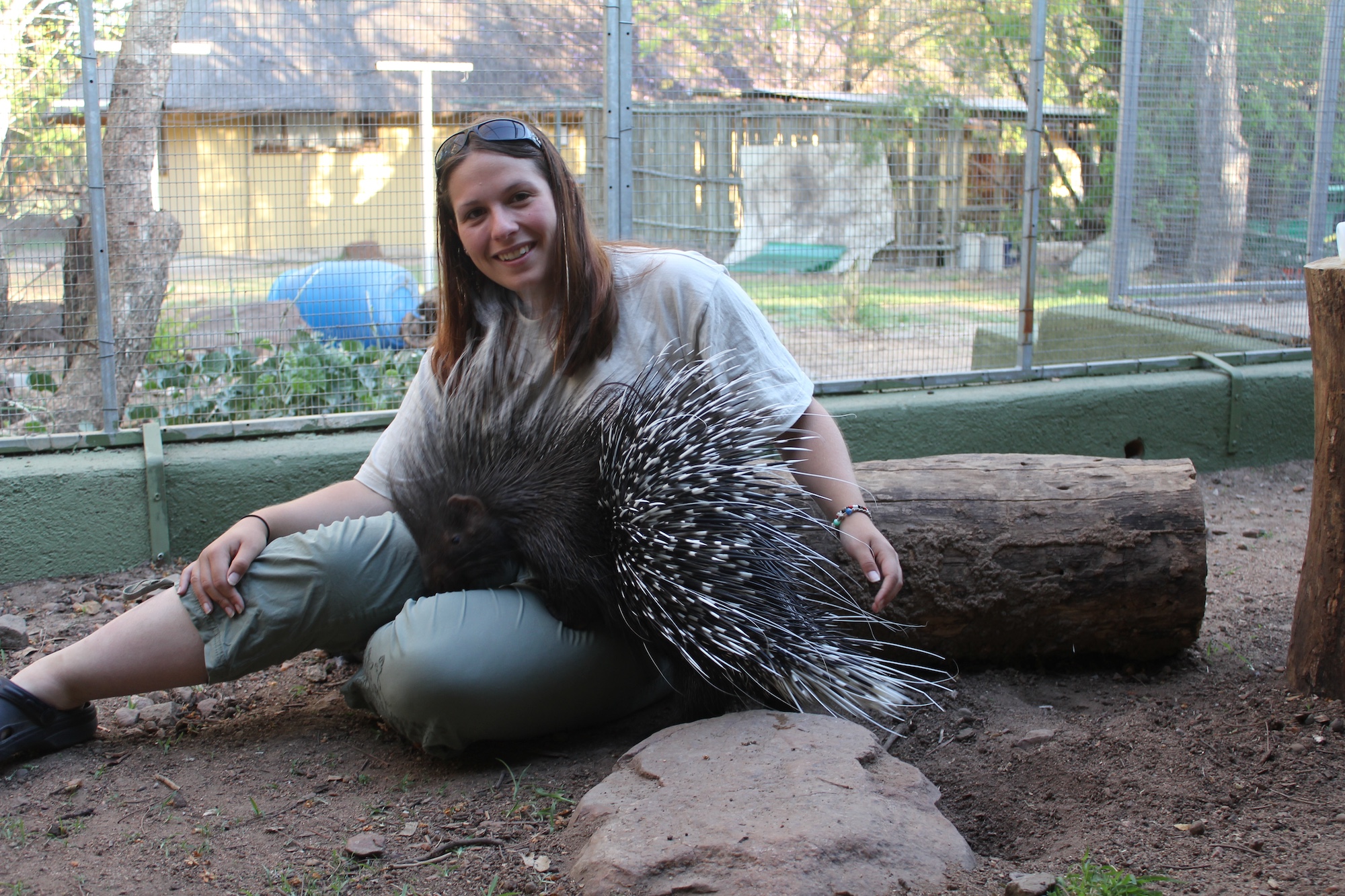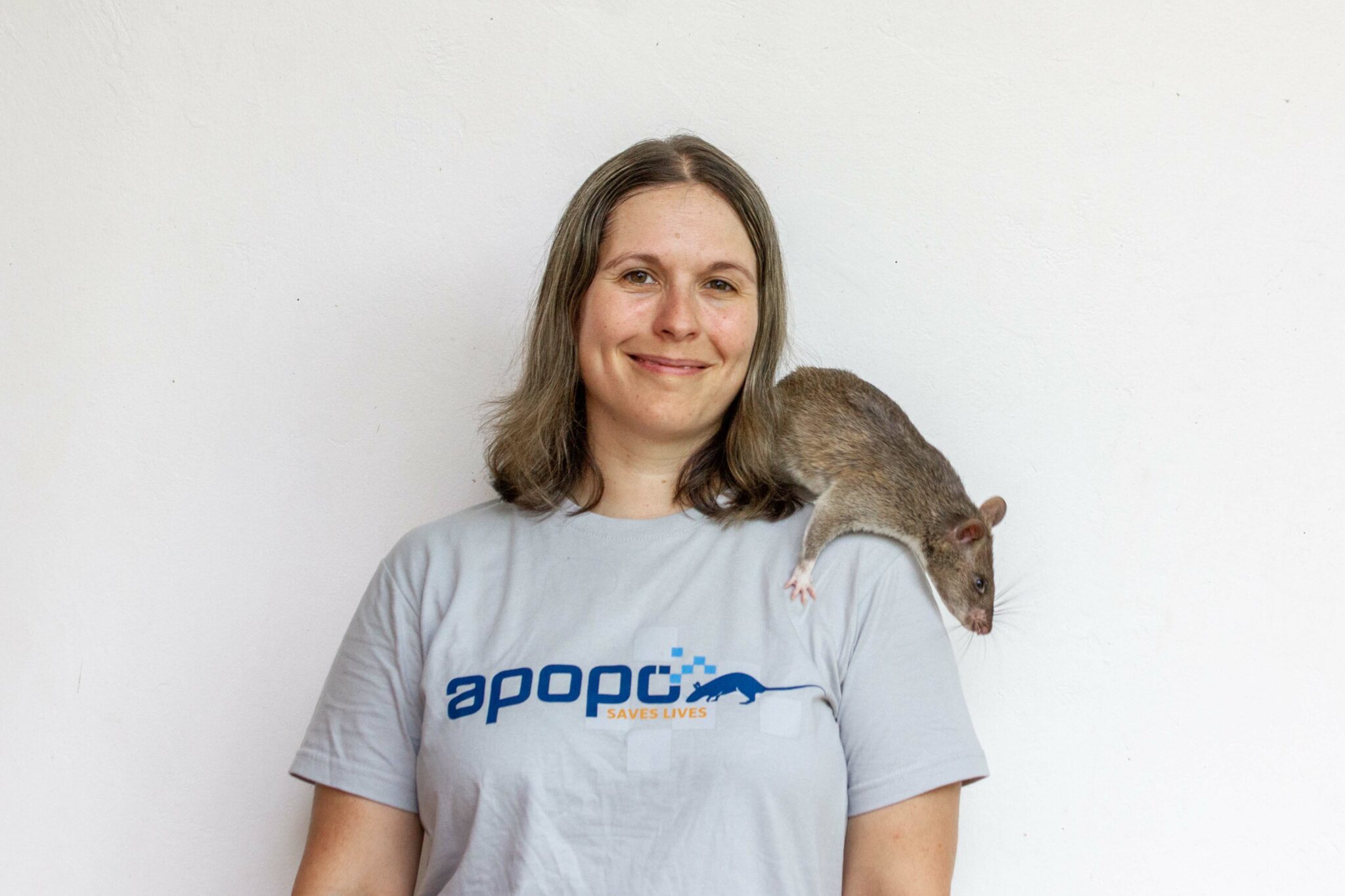International Day of Women and Girls in Science
This International Day of Women and Girls in Science, APOPO is proud to present an enlightening interview with Jade Fountain, a dedicated PhD candidate currently stationed at our Operational Headquarters in Morogoro, Tanzania.
Jade’s academic pursuits in animal behavior, wildlife conservation, and zoology have led her to APOPO. In Morogoro, Jade is working on our wildlife detection project and boosting the training capabilities of our team, as well as making use of her expertise to advance research and improve animal welfare.
Her journey is a shining example of the profound impact that women in STEM can have on both scientific discovery and practical application. Join us in celebrating Jade Fountain’s contributions to science and the empowering presence of women and girls in the scientific community.
What is your scientific background?
I have a BSc in Science majoring in zoology and psychology. I also completed a MSc (Zoology/Animal Behaviour) and a Master’s in Applied Behaviour Analysis. Now I am a PhD candidate at the University of Adelaide in Australia, looking at efficacy of training and enrichment to improve animal welfare, with an interest in how animal training might be applied across settings to help animals live a good life and assessing how scent detection influences behaviour and physiology. My previous academic research looked at personality in Tasmanian devils, aggressive behaviour in Australian native birds and disruption of neurobiological reward pathways during learning.
Why did you choose to become a scientist?
I fell into the path when I was pursuing any information I could, on the topic of animal behaviour and learning. I was also inspired by a lot of peers and colleagues I worked with in various roles, who had scientific backgrounds or worked as researchers. Seeing how they contributed to conservation and welfare, and what they got to spend their days doing helped shape my interest. As an animal behaviour and training consultant I am interested in why animals behave the way they do, so diving into research to ask these questions was an extension of that passion.
Did you have a role model that influenced your decision to work in science?
“If I have seen further, it is by standing on the shoulders of giants.” A quote by Issac Newton comes to mind as there are so many influential scientists. I had started gaining a strong interest in behaviour sciences and animal training sparked by Karen Pryor. Along the way I have discovered incredibly inspirational woman in this field that paved the way for others to have success. The biggest early influence for me were David Attenborough and Jane Goodall.
How did you choose your field of study?

I was incredibly passionate about animal behaviour, wildlife conservation and zoology from a young age, so for me there was never a question about what field I wanted to study. I wanted to contribute to making a difference and learn as much as possible. I have a lot of interests in various areas and am looking forward to delving into neuroscience in future study plans.
What are you working on at the moment?
I am working on my PhD, which is focused on understanding more about what happens with behaviour and physiology when dogs are searching for odours, specifically I am investigating how scent detection activities might benefit companion dogs. I am working through analysis of two projects and preparing a manuscript for publication.
I am currently in Morogoro, Tanzania at the APOPO Training Headquarters, where I am assisting with research on the wildlife detection team. As a professional trainer and behaviour consultant, I am also providing capacity building opportunities for the incredible team of trainers here.
What is the funniest or most memorable thing that has happened to you while working in science?

During fieldwork some of the standout memorable moments were seeing my first pangolin and black rhinos in the wild, climbing to the top of sand dunes in Namibia, learning to dart hanging from a helicopter, releasing hundreds of endangered frogs into the wild, tagging and releasing wild cranes, observing tiny joeys in the pouches of critically endangered wallabies, having a baboon open a car door and jump into the back seat and running from a bull elephant.
What are your biggest achievements?
Completing my second master’s degree during the pandemic was one. Getting the opportunity to develop and lecture an Applied Behaviour Analysis for animals class at the University of Adelaide for two years was a highlight that I enjoyed. Now, this year receiving a DR Stranks Fellowship and getting to come and spend time with APOPO is a defining part of my journey that I am thankful for!
Do you come from an academic family?
I was the first in my family to go to university, although my family has avidly supported my interest in learning.
How does your family feel about your career choice (and moving to Tanzania)?
They are very used to me traveling all over the world for different lengths of time, so this is not very out of the ordinary. They have been able to visit me in different countries at different times and I am sure they appreciate the stories and the experiences I share with them.
What challenges have you faced as a woman in STEM? And how did you overcome them?
At times feeling heard or seen can feel challenging in a room full of male colleagues, but persevering and showing through demonstration and speaking even if your voice is shaking is so important. I have come across statements such as ‘you have too many emotions’ or being oversensitive about animals’ feelings and ‘being overkind is weak’ is something that has come up a lot.
Science can be effective, progressive, and humane whether we are dealing with animals in our care or human co-learners in academia. The mentality of ‘it has always been done this way’ is something I think about a lot. It can be helpful to ask why we take a traditional approach when new solutions are possible. I have found this particularly valuable when working with animals.
In your opinion, which changes, if any, are needed in the scientific system for it to be more attractive to women in science and possible future scientists?

Providing greater awareness of career and research opportunities within STEM. STEM possibilities expand so far from the images you hold of building robots, solving math questions, or researching in a lab. They don’t tell you that you that science can involve spending your day watching puppies play, tracking leopard through the bush, training dogs to search for things, sitting at sunset counting giraffe at a waterhole, or counting Tasmanian devil interactions.
I also think providing STEM mentor programs where girls can hear regular stories and real-life examples of what women are achieving, or have opportunities to shadow along and watch the possibilities to have that flame sparked is something we definitely need.
If you could give advice to young girls in STEM (or a younger version of yourself), what would that be?
Say yes to every opportunity that resonates with you, step outside your comfort zone and remind yourself that you can be good at things you want to be. Stay curious about why things work the way they do and find ways to answer those questions.


